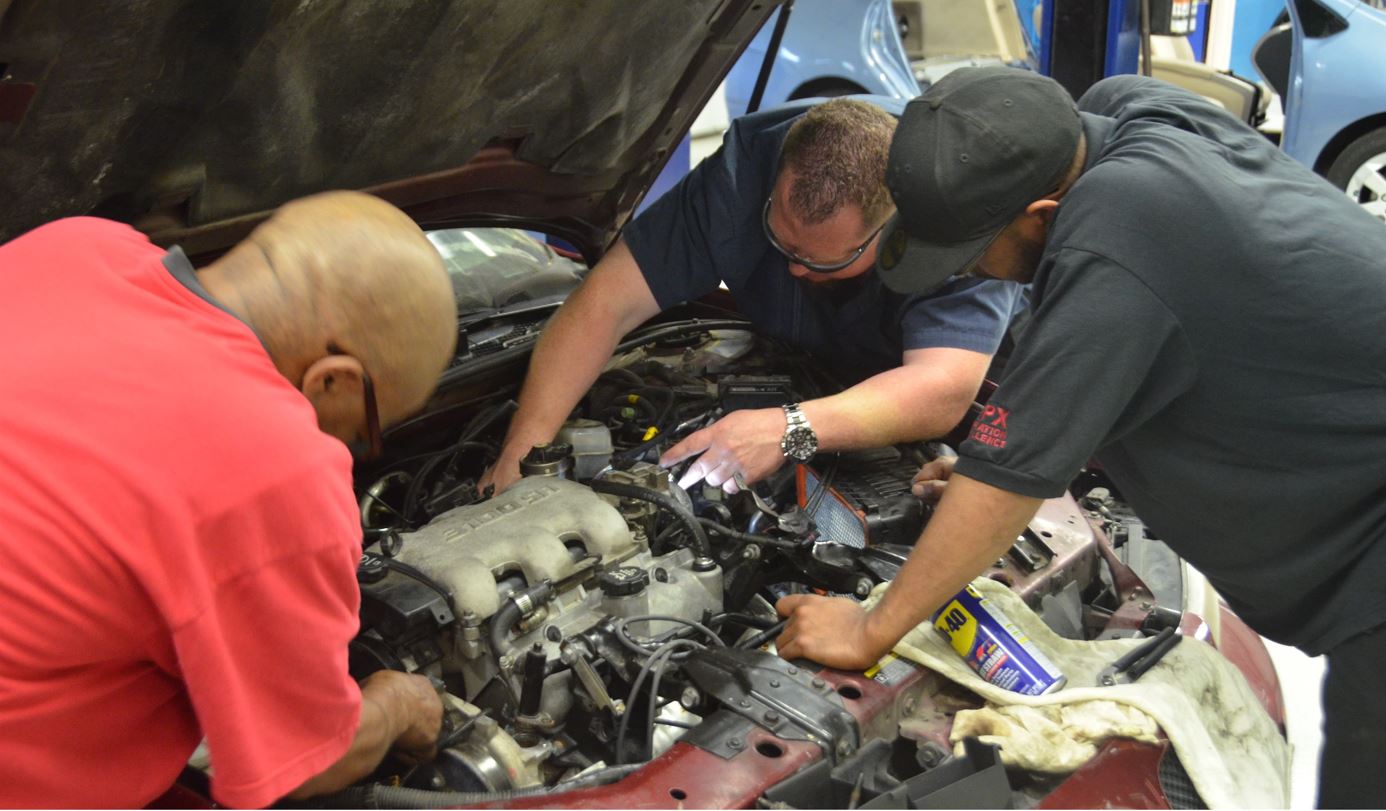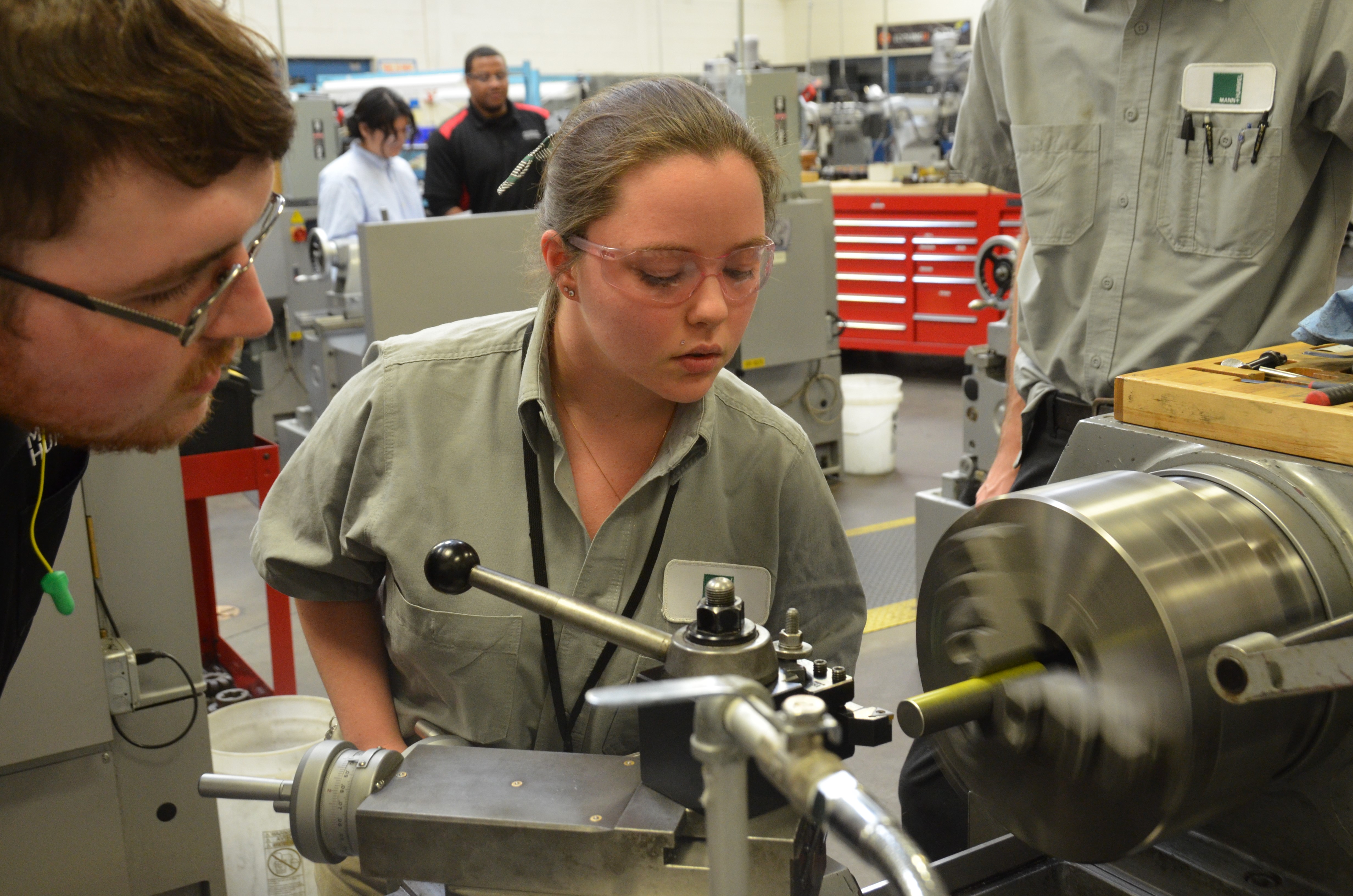
Engineering a workforce: FTCC provides a wide variety of career-focused programs for high-demand skills in engineering & applied technology fields
By Eddie Velazquez, posted Apr 25, 2024 on BizFayetteville.com

Fayetteville Technical Community College has one clear message for North Carolinians; a well-compensated and fulfilling career in industries of the present and the future is possible without committing to a traditional four-year university.
FTCC’s Engineering and Applied Technology academic programs range from expected offerings like a vast air conditioning, heating and refrigeration technology program, to a recently devised curriculum in the Mechatronics Engineering program. The latter is one of the college’s newest offerings and is emblematic of the mission that Engineering and Applied Technology Dean Pamela Gibson says FTCC is trying to accomplish.
“What we are trying to do is to help young people and their parents to see where the opportunity is,” Gibson said. “Not everyone needs to go to university for a four year degree, that’s not necessarily the best ticket to a fulfilling career with family sustainable wages. These are great career fields where folks can go out there and make six figures easily.”
The Mechatronics Engineering program is robust and accessible. At the same time, Gibson said, it can help the workforce get ahead of automation trends. The program can generally prepare students to work as an electromechanical technician. Randstadusa.com estimates that the average rate for workers in that field in a city like Charlotte is around $32 per hour.
“There is [a] huge opportunity in manufacturing for people with these multicraft skills,” Gibson noted. “Students are learning electrical and mechanical engineering, they get some welding and some machining skills, they also get some design work, as well as experience in instrumentation and robotics.”
Robotics, Gibson said, are indicative of the future of manufacturing.
“Everybody wants to say ‘Oh, the robots are replacing the workers.’ That is true to a certain extent,” she said. “They might replace the operator, but we still need people who are then going to program these robots. We are going to need workers who do maintenance on these robots, who are going to troubleshoot whenever there are issues with them. That is where the future is.”
Other examples of programs that Gibson highlighted as necessary skill sets in prosperous industries are the Automotive Systems and Collision Repair programs.

“There are a lot of things happening in the automotive world, so we are teaching our students about hybrid and electric vehicles (EV),” Gibson said. “That's a course that we're offering in the summer time for students to be prepared to be technicians for hybrid and EV vehicles. There are also Advanced Driver Assistance Systems courses.”
Gibson added that these courses help prospective technicians learn how to service the systems that power advanced car features such as proximity sensors.
“All those bells and whistles, you have to know how to service that. That is true not just for auto mechanics, but also for collision repair,” she said. “I don’t want to call that up and coming because it's already here, but these are the things that we're preparing the technicians to be able to do when they leave us.”
Regardless of the program choice, Gibson said she expects graduates of FTCC to garner significant attention in the job market.
“They will have lots of job opportunities, both locally, within the state and nationally,” she said. “I think that students can expect to have a very solid foundation in that occupation and to be able to be very productive as soon as they’re hired. With some of our programs, I also think that students can also expect opportunities to continue learning and moving up within the occupation.”
Opportunities in these fields, she noted, are only bound to continue.
“When you're talking about skilled trades, you're talking about a workforce that is aging out. The average age in most of these areas of work is 55 years old, so they are nearing retirement. A lot of these industries are very concerned about where their future workforce is going to come from.”
Gibson said that youth involvement is important to the future of continuously developing industries.
“I would really really want to see more young people who are going to come into these careers and be in these industries for the next 30 years,” she said. “I would also say to industries that we need them to partner with us in this. If they have not reached out to us, if they have not established a partnership with us, they need to contact us. We want to work with, and we need to know what their employment needs are, and how we can prepare our workforce for them.”
_______________________________________
For a full list of Engineering and Applied Technology programs at FTCC, interested parties can visit: www.faytechcc.edu/academics/ engineering-applied-technology-programs
Copyright © 2026
Enhanced Media Management Inc. dba
Greater Fayetteville Business Journal
This story may be displayed, reformatted and printed for your personal, noncommercial use only and in
accordance with our Terms of Service located at https://bizfayetteville.com/useragreement.